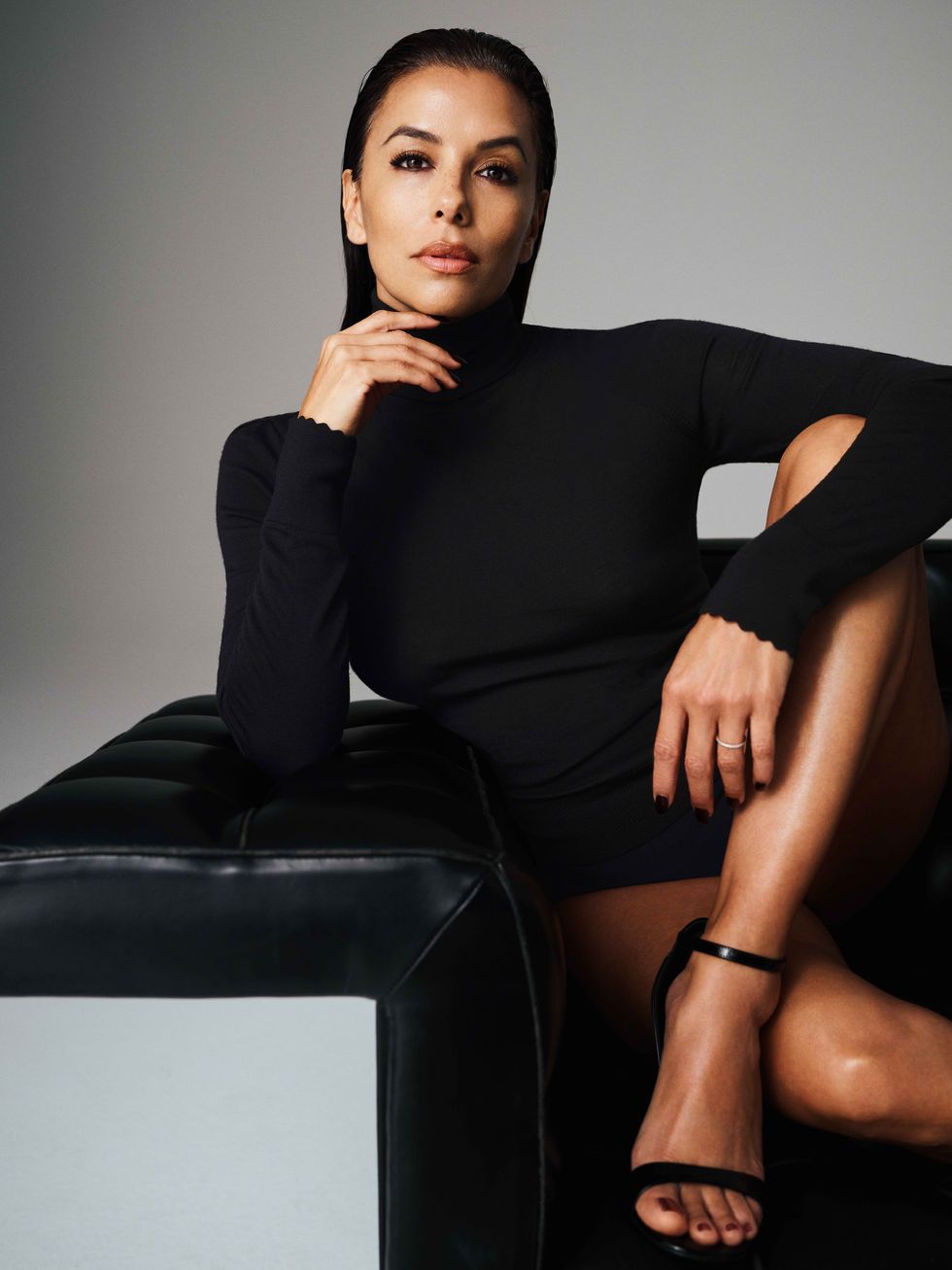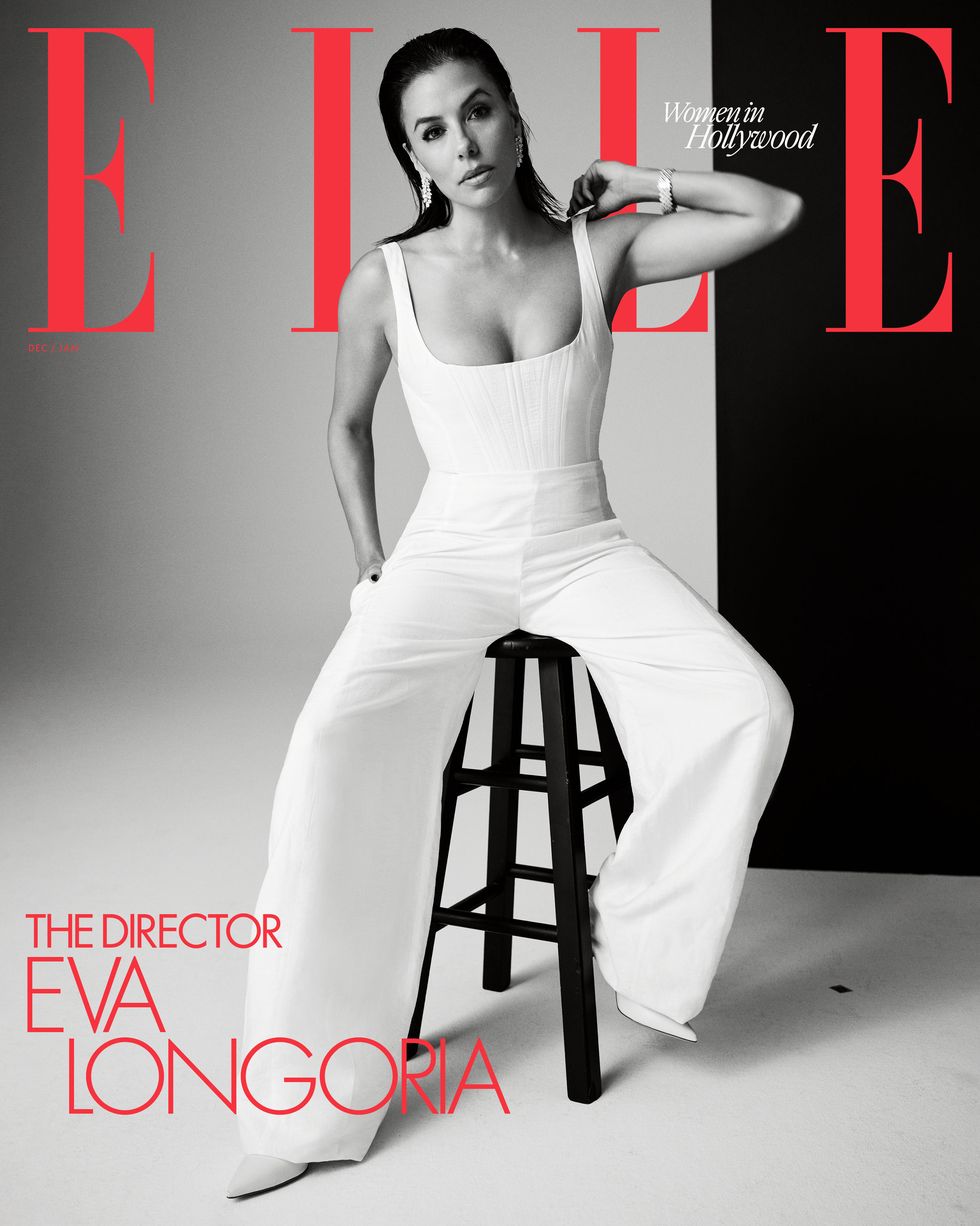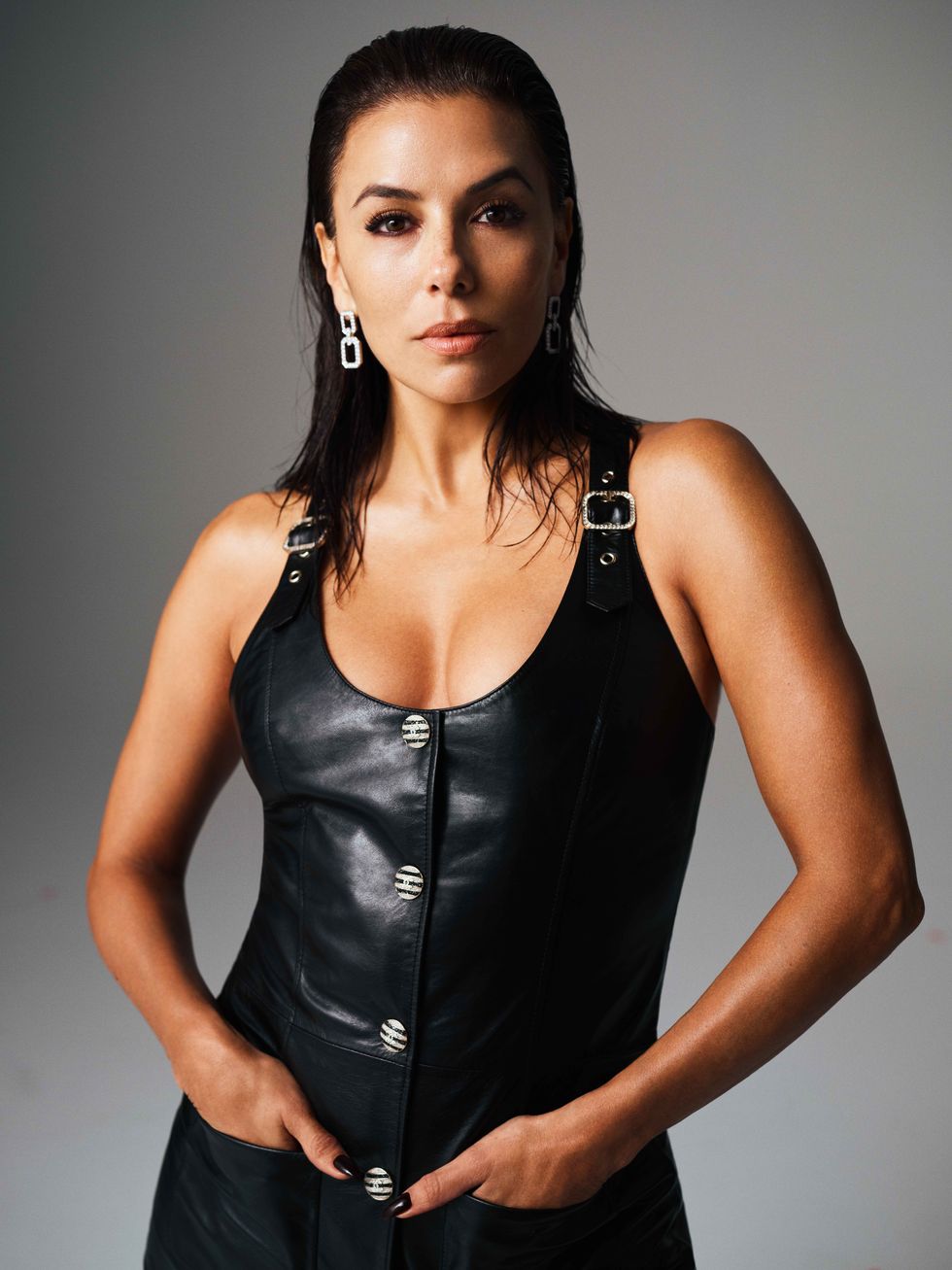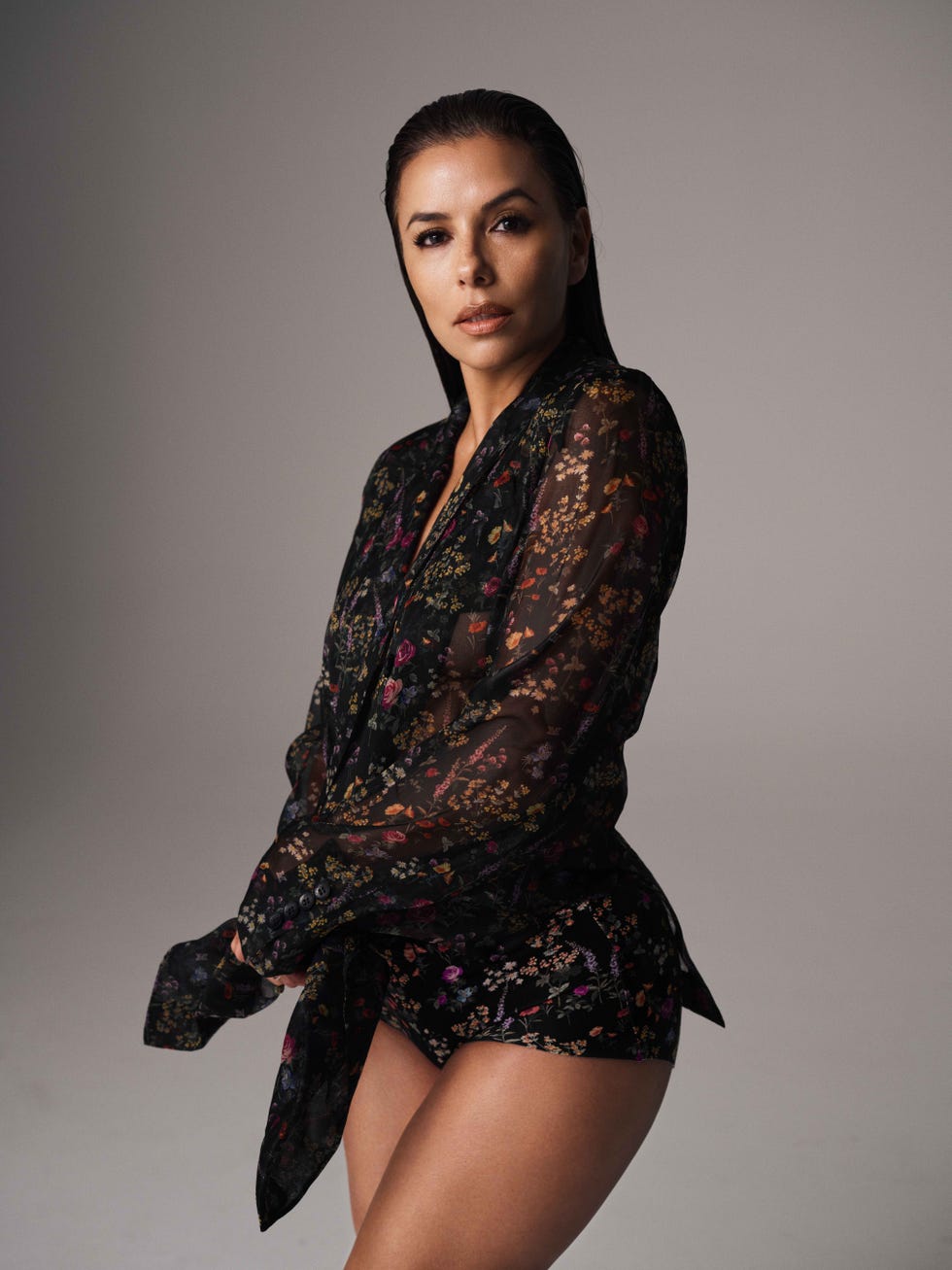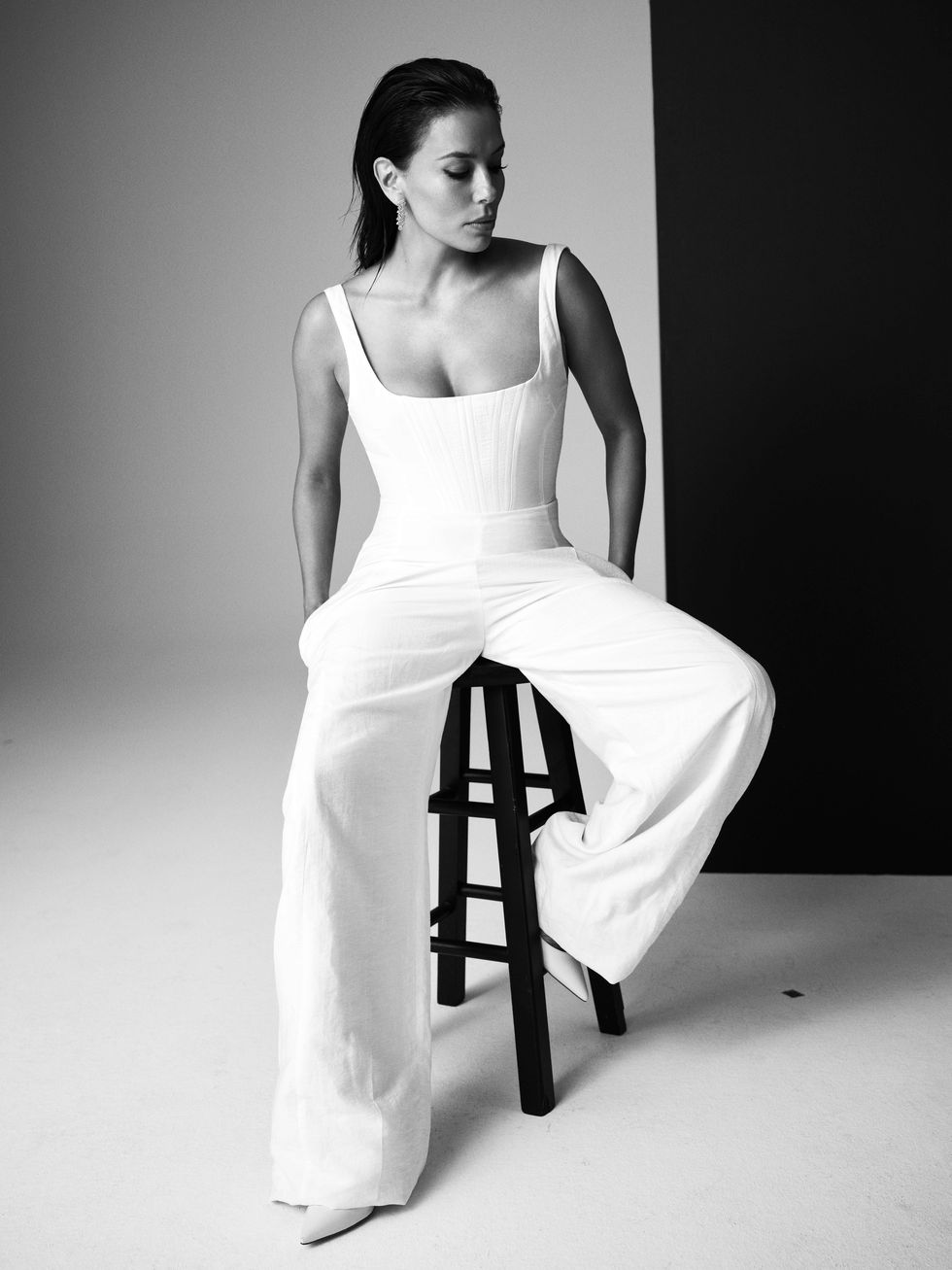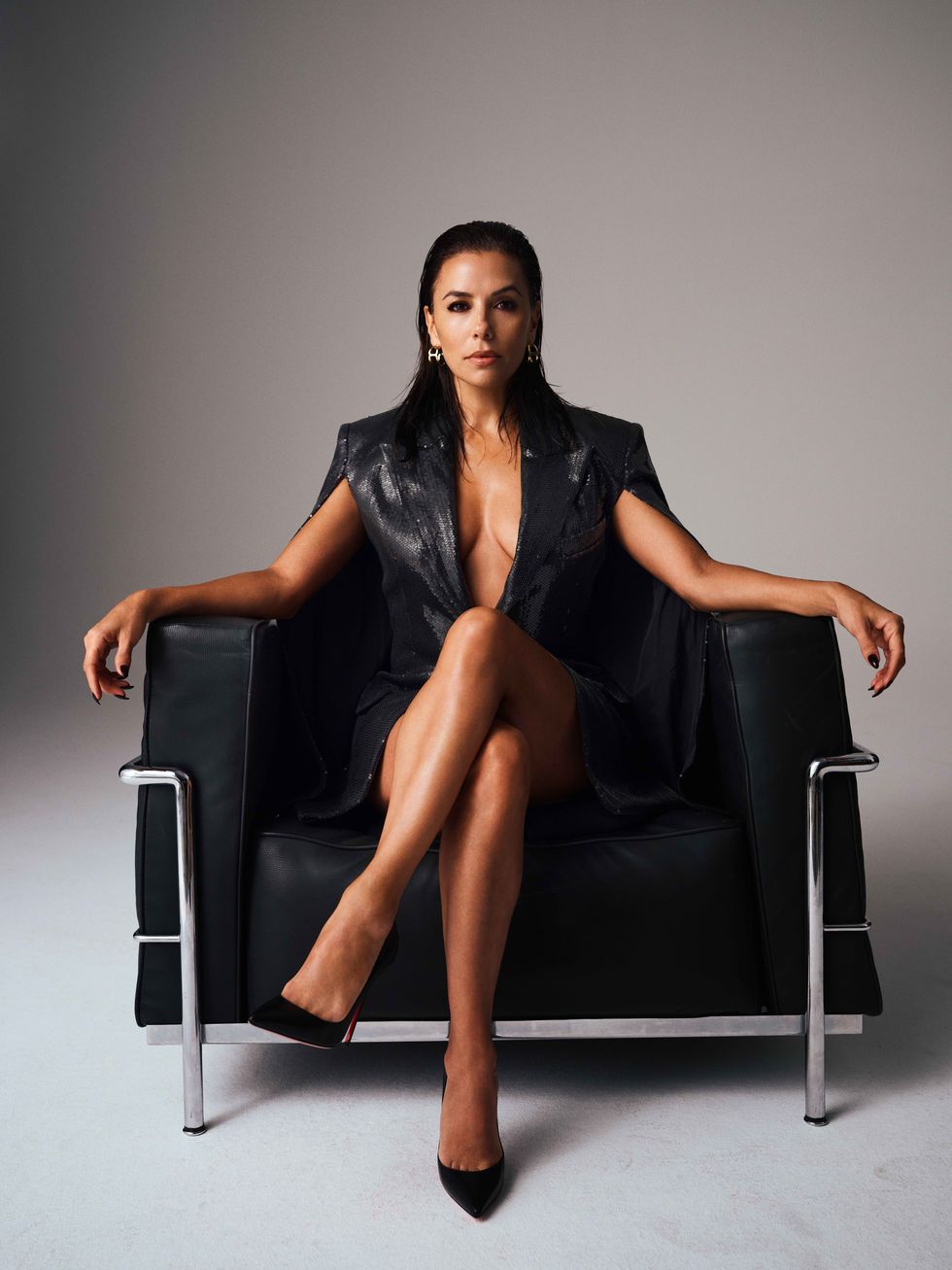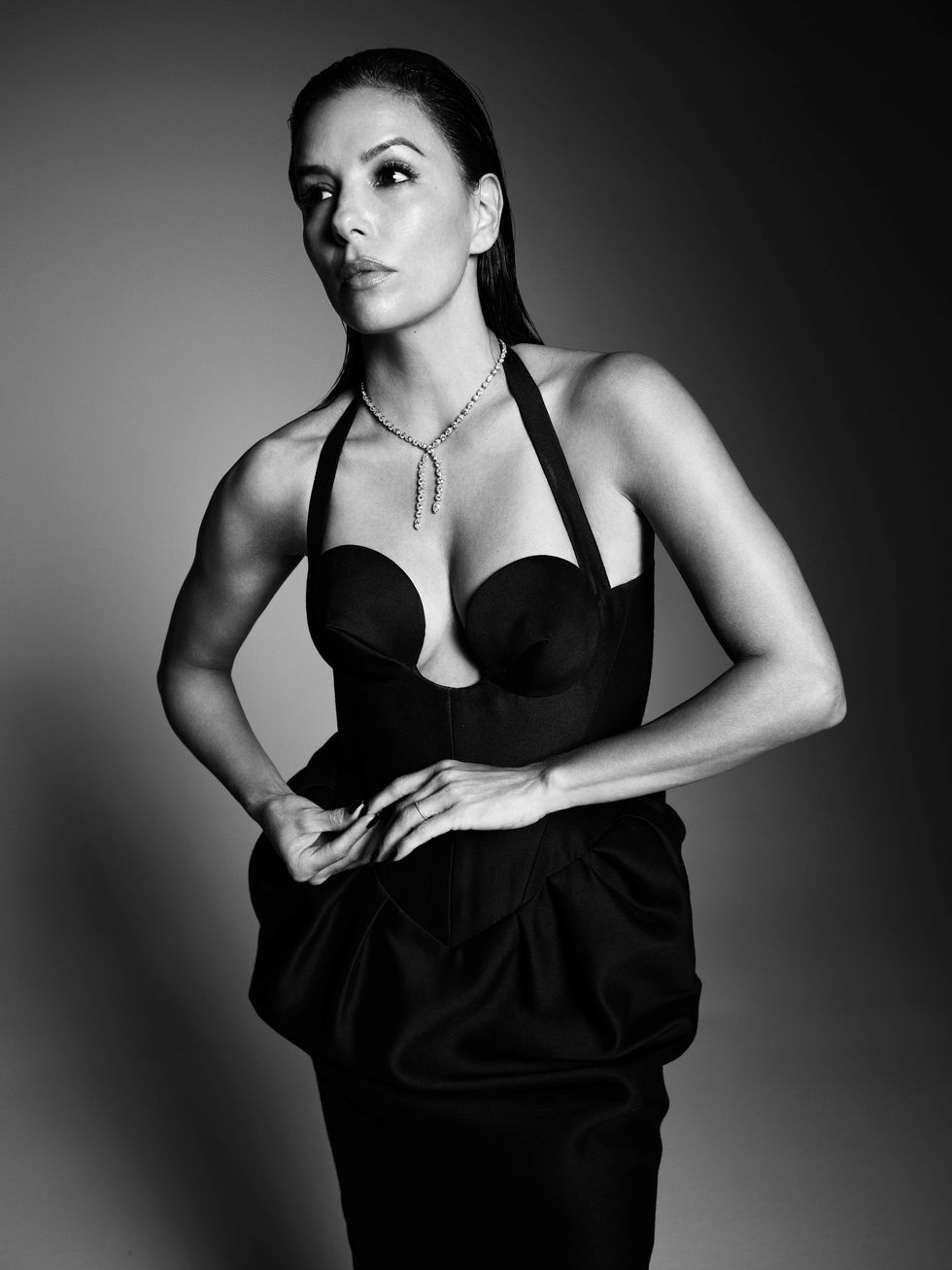Eva Longoria Has a New Role
“Hollywood gets to decide what heroes look like, and they never look like us,” Eva Longoria says. That’s why telling the story of Richard Montañez, the Frito-Lay janitor who claims to have invented Flamin’ Hot Cheetos—the subject of her directorial feature film debut, Flamin’ Hot—was so appealing. “I looked at Richard and I was like, ‘Oh my gosh, this would be a great opportunity to create a hero who looks like my dad, who looks like my uncle, who sounds like my family.’”
The film, released on Hulu and Disney+ in June, was a hit—Searchlight Pictures reported it was the most-watched streaming premiere in its history. It did what Longoria knew it would: connect with people, many of them Latino, who were seeking a heartfelt, redeeming story about a working-class family. “I think, ‘Wow, I’m so humble and grateful,’ but then I balance that with thinking, ‘Fuck yeah!’ ” Longoria says. “And (a) I knew I could do this, (b) this is exactly the movie I pitched and the vision I had, and (c) of course we’re having success. I’m blown away, but at the same time I’m like, ‘No, you expected the success, you manifested it, you dreamed it—now own it!’”
For almost as long as we’ve known Longoria as a performer, we’ve been loving films, TV shows, and documentaries produced and directed by her. It was during her star-making eight-year run on Desperate Housewives, in which the Corpus Christi native played the model-turned-businesswoman Gabrielle Solis, that Longoria first became fascinated by the people behind the camera. She’s since directed episodes of Jane the Virgin, Black-ish, and Devious Maids, and produced programs that spoke to her desire to showcase Latin stories, like HBO Max’s Gordita Chronicles, about a Dominican girl growing up in 1980s Miami. But Flamin’ Hot is likely the proudest moment of her career. “You have to assume you have the job—that’s what men do all the time. They don’t assume they’re fighting for the job,” she says. “Hearing that changed my approach and my tone in the room when I pitched Searchlight. I was like, This is my movie, and I, in every fiber of my being, knew I would be directing this. It’s mine, it’s mine, it’s mine.”
It’s not lost on her how much was riding on her success. “I couldn’t fail at my first movie—that wasn’t an option for me, because then I wouldn’t get a second chance,” Longoria says. “Men can direct a $200 million movie, fail, and get another $200 million movie. And you’re like, What?” To change that imbalance, she says, “You have to work harder; you have to work smarter. I don’t mind doing that until we have equality. I’m going to keep pushing the line and doing all I can to pave the road.”
On what she wishes she knew before getting into Hollywood
“Nothing. I love that I was pretty naïve when I entered the business. Because I was like, ‘Oh, I want to make a movie! How do you make a movie?’ I remember reading a book about it. I went to the library and I was like, ‘Oh, that’s a budget.’ I copied the budget from the book onto paper. There’s nothing I would have changed about that journey.”
On being typecast
“I remember when I was on Housewives and I was the sexy one, people were like, ‘Are you scared you’re going to be pigeonholed as sexy?’ I was like, ‘Oh God, no. I’m riding that wave to the beach. Go ahead and say I’m sexy.’ I don’t care, because there’s going to be a day when you’re going to say I’m not sexy, and I won’t care then either.”
On advice she’d give a young person
“I’m always like, ‘Honey, it feels loud to you in the moment, [but] this too shall pass. Then it’ll be something else.’”
On her longtime political activism
“There are things that are a lot more important than box office and viewers. Women’s rights are very important. The dismantling of human rights, of health care systems, of education systems. The banning of books. These are very dangerous things that need to be talked about, looked at, voted on, and advocated for. So it’s not an ‘Oooh, do I do it?’ I have to do it. It is nonnegotiable. I don’t ever think, ‘I’m going to alienate half an audience’ or ‘I’m going to lose some Twitter fans.’ That doesn’t matter to me if I’m saving democracy.”
On whether she’d ever run for office
“No, no, no. No, and I think that’s the myth, that you have to be a politician to be political. That’s not true. The most powerful person in democracy is the citizen. Once you become a politician, your hands get tied. You’re beholden to special interests; you’re beholden to certain industries. As a citizen, you can speak your mind as loudly as you want.”
On her “only in Hollywood” moment
“I remember my first Golden Globes, because I didn’t know what a Golden Globe was. I was like, ‘What is this place? George Clooney’s here, oh my God.’ We won, and I was just like, ‘Oh, is that hard? Is it hard to win?’ My naïveté was my superpower back then.”
Hair by Teddy Charles at Nevermind Agency; makeup by Pati Dubroff for Forward Artists; manicure by Ashlie Johnson at the Wall Group; produced by LOLA Production.
A version of this article appears in the December 2023/January 2024 issue of ELLE.
This story is part of ELLE’s 2023 Women in Hollywood portfolio, our annual celebration of the women we loved watching this year. Click the link below for all the cover stories.

Features Editor
Adrienne Gaffney is the features editor at ELLE and previously worked at WSJ Magazine and Vanity Fair.


